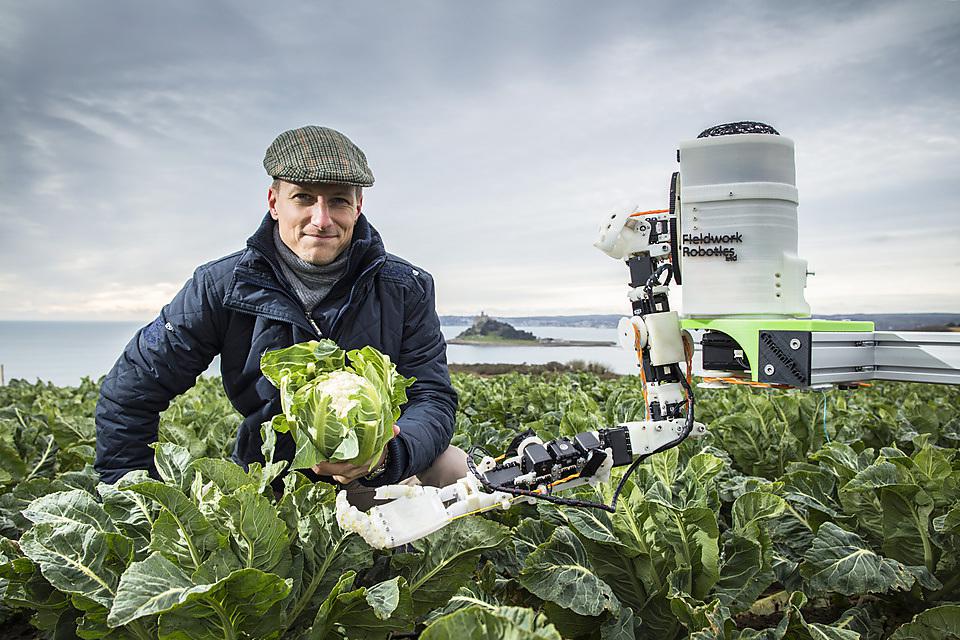
As the demand for vegetables increases, the need for efficient production, preferably locally grown, also increases. The robot from Fieldwork Robotics will contribute by using arms with 3D cameras, sensors and machine learning to pick cabbage – to begin with.
Fieldwork Robotics is a spin-off from the University of Plymouth, which has been involved in similar projects in the past. Once the robot can handle cabbage, it will be adapted to be able to pick other vegetables as well as fruit and certain berries .
Dr Martin Stoelen at the University of Plymouth is responsible for robot development. The project includes several partners, including French Bonduelle , who contribute knowledge about the vegetables themselves and their harvest conditions. Bonduelle is also setting up cultivation areas for the project.
One of the challenges is the robot’s ability to determine when the cabbage is ripe to be picked. It therefore also has a collaboration with Agri-Tech Cornwall, which is investing millions of dollars in the project.
(The project is in a bit of a hurry because the UK wants to take into account what may happen after Brexit – several warn that there may be a shortage of labor.)
The robot will learn to recognize ripe cabbage through sensors and 3D cameras in its “hands”. The system will get better and better at identifying ripe cabbage (which is picked), at the same time it leaves the ones that are not ready until later.
The project also includes a collaboration with German Bosch, which will contribute to the development of both robotic arms and software.
The robot needs a couple of years to go from prototype to launch-ready product. Launch is planned for 2022.
“Manual harvesting accounts for a very large part of the producer’s total costs, often up to 50%.” – Dr. Martin Stoelen
There are already robots picking strawberries. (Martin Stoelen was also involved in it.) A lot of attention was created when that project was presented in 2019 . The forecast then indicated that a robot picks twenty-five thousand strawberries a day, far above what a human is capable of.
For those who are worried that the robots will take the jobs away from us, everything indicates that they will primarily be used in low-skilled occupations . At the same time, the robots will create new jobs – people are needed to program, service and operate the new picks.
“It may be that in 10 years, instead of spending hours in a tractor cab, your role will be to handle and maintain robots like these.” – Dr. Martin Stoelen
Let the future come faster!




